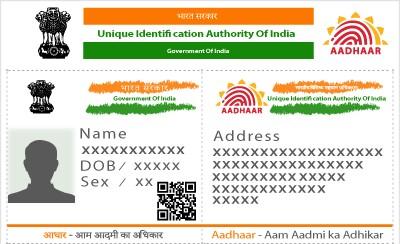The hearing for the Aadhaar-PAN case spilled over to day 3 with Senior Counsel, Shyam Divan making his concluding remarks. Attorney General, Mukul Rohtagi, representing Union of India is scheduled to raise his arguments in reply on Tuesday, 2nd May, 2017. Updates from day 1 and day 2 of this hearing can be accessed here.
On day three of the hearing, Mr. Shyam Divan arguing for the petitioners laid the following points:
- The right to informational self determination should be made a facet of Article 21. He quoted the population census decision of the German Federal Constitutional Court in which the new basic right of informational self determination was invented. It is considered the legal anchor for data protection in Germany. The protection of personal data is essential for a free and self determined development of the individual. Informational self determination and data protection have two corresponding effects: the individual is shielded from interferences in personal matters, thus creating a sphere in which he or she can feel safe. At the same time, data protection is also a precondition for citizens’ unbiased participation in the political process of the democratic constitutional state. The democratic state relies on the participation of all citizens and its legitimacy is based on respecting each person’s individual liberty. Neither the right to informational self determination nor a general right to privacy are explicitly mentioned in the German Constitution (Grundgesetz). However, the Federal Constitutional court had recognized a general right to personality which encompasses protection of human dignity and protection of personal liberty. In the Indian context, it is the legitimate concern of the petitioners to demand informational self determination even if the court does not consider it a constitutional value. The proof of identification and address is given to private parties and not to any government official, therefore informational self determination gets magnified by the manner Aadhaar is being implemented, by forcing individuals to part with their sensitive information.
[A few articles that Mr. Divan mentioned while discussing informational self determination can be accessed here, here, and here]
- Registrar is an entity authorized by the UIDAI, and could be a bank, public sector employees, or any other agency. They are partner to UIDAI vide a Memorandum of Understanding and are the trustee of information given to them by individuals under Aadhaar. The functions of registrars includes, retaining of biometric data and demographic data till it is transferred to UIDAI. Also, registrars are allowed to formulate their own security policy. Mr. Divan further pointed out that the registrars have no privity with the Government. He called it a complete debasement of individuals’ right to informational self determination.
- To compel individuals to speak to a third party about their confidential data is a violation Article 19(1)(a). He cited the 1986 judgment of Bijoe Emmanuel v. State of Kerala, where the court had recognized the students’ right to not sing the national anthem as part of Article 19(1)(a) and Article 25.
- The State has no legislative competence under Entry 82 of List 1 or any other legislative power to secure dominance over an individual’s fingerprints and iris scans. There is no theory of eminent domain with regard to the body, except in narrowly tailored circumstances like border control and prisoners’ identification. He also went on to highlight that whenever a person gives anyone his personal data, the property and entitlement to that data remains with the individual. The state is merely a trustee and hence cannot force the individual (beneficiary) to part with his data. He also cited Lord Atkins’ immortal dissent in Liversidge v. Anderson and appealed to the court to not allow the government to canvas a Humpty Dumpty interpretation of the statute.
- Aadhaar is applicable to children as well, and Mr. Divan questioned that how can they be compelled to be yoked to a digital network system like Aadhaar before they even reach the age of free consent. He further pointed out that Aadhaar is a violation of 19(1)(g) as it will restrict freedom of trade, movement and association.
- Concluding his arguments, Mr. Divan requested the court for a blanket stay on Section 139AA. If a blanket stay is not permitted, then at least prevention of coercive action against those who do not have Aadhaar was prayed for. Also. he asked the court to pass an order to stop the invalidation of PAN in case Aadhaar is not linked by an individual.
In the end, Senior Advocate Salman Khurshid sought permission to file written submissions in the matter. The court is scheduled to hear it on 2nd May along with the State’s reply.




